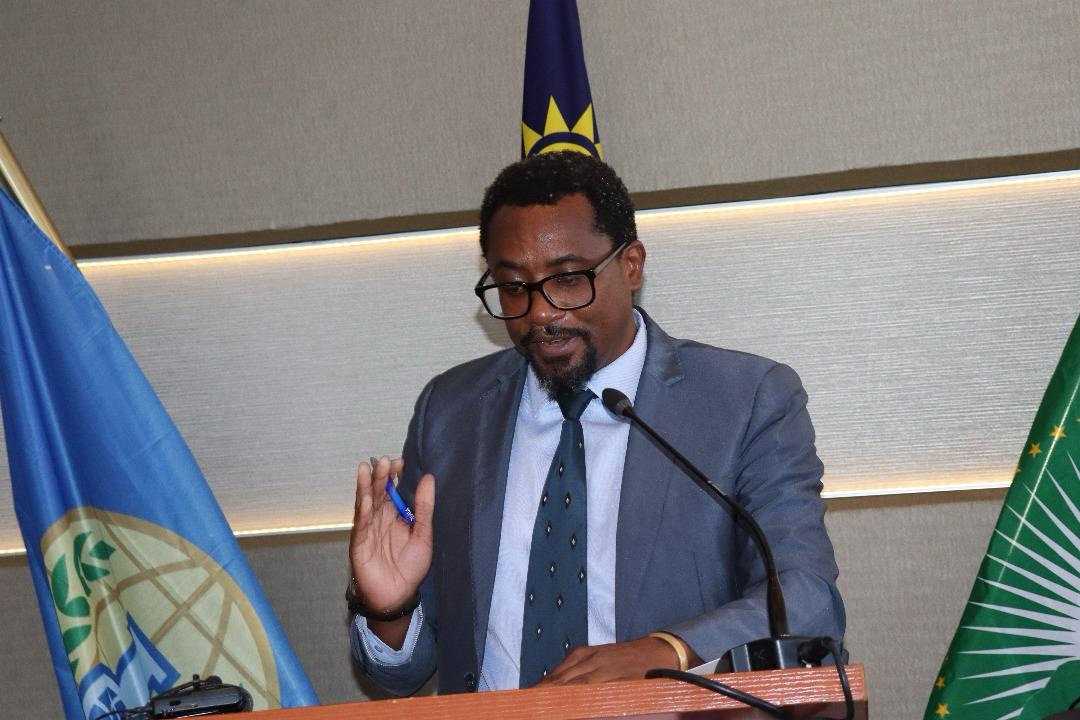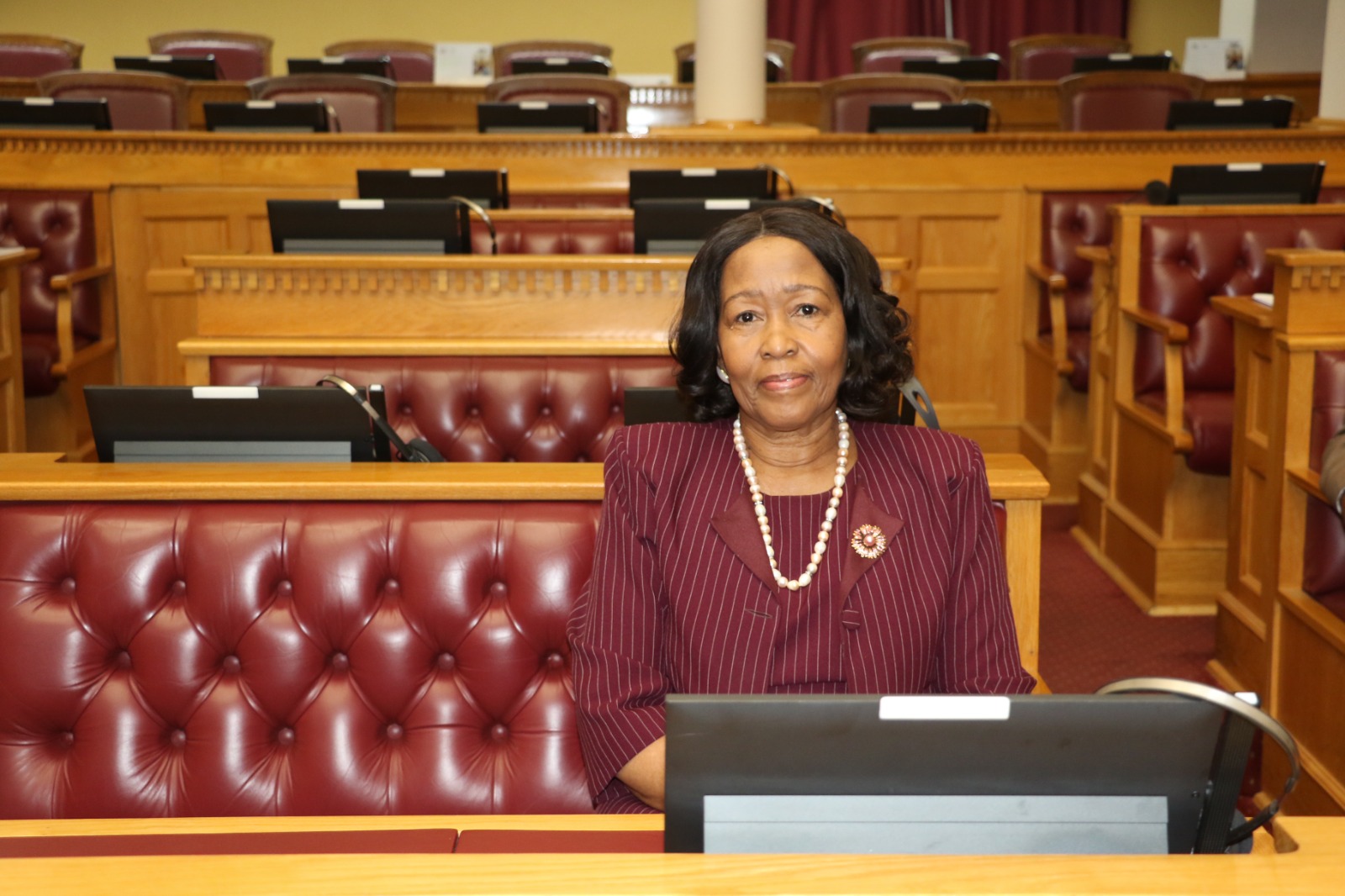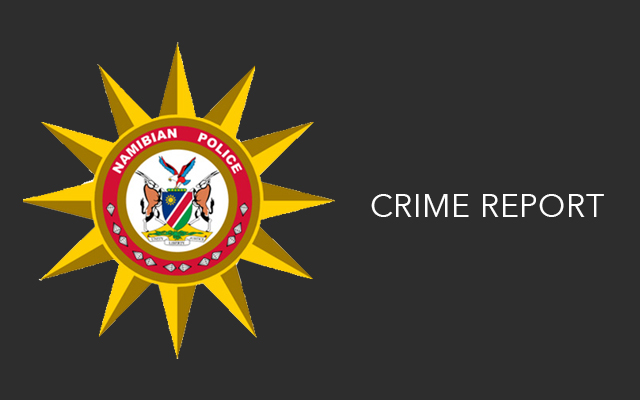A TOP-LEVEL delegation, including representatives of UN agencies, is scheduled to fly to the North today to assess the humanitarian situation at flood-stricken Engela, as well as surrounding areas.
Heading the group are Health Minister Dr Richard Kamwi and Defence Minister Charles Namoloh, who will be accompanied by representatives from the World Health Organisation (WHO) and Unicef Sources yesterday indicated to The Namibian that the group was flexible and might visit more areas depending on the time at their disposal. A number of areas in the North have been hard hit since the onset of flooding this year.Cholera cases have already been reported in the Engela district.So far one death has been attributed to the waterborne disease, and four cases have been positively diagnosed as cholera.The Director of Health in the Ohangwena Region, Kaino Pohamba, told The Namibian yesterday that all cholera victims identified at Engela recently were from either Angola or from Namibia’s border town of Oshikango.She said that there were another 72 suspected cases of which 13 were close to being diagnosed as positive.All the cases have been transferred to the Ohangwena Clinic to be kept in isolation there.Pohamba urged villagers not to drink efundja water.She said they should boil it before either drinking or using it, as water had overflown from sewerage oxidation dams in flooded areas.Many villagers do not have proper toilet facilities and often relieve themselves behind bushes.Pohamba advised people to take spades and to dig deep holes to bury their faeces to help avoid them contaminating the floodwater.Cholera is transmitted through dirty water.She also issued a warning to those eating fish caught in the oshanas.It was vital to cook the fish properly she cautioned, citing water contamination.Fish are abundant and many people are desperately catching them – for own consumption or to sell to get money to buy food and other items.Many people who have been displaced by the floodwaters do not have food, or enough food, and are ignoring health warnings.Some are even using mosquito nets to catch fish.Pohamba also told The Namibian that they were very concerned about clinics that have been cut off by the floods.She said so far they had received assistance from the Namibia Defence Force, which has provided them with a helicopter.They are using the airborne help to transport medicine, medical equipment and other medical material to clinics, health centres and communities, which have been cut off by floodwater.Staff members are also being transported to clinics that cannot be reached by vehicles.Pohamba said that the road between the Ohangwena Clinic and the main road to Oshakati had been damaged by floodwaters yesterday, making it difficult for ambulances to get through.She said that the situation was serious but still under control.A number of areas in the North have been hard hit since the onset of flooding this year.Cholera cases have already been reported in the Engela district.So far one death has been attributed to the waterborne disease, and four cases have been positively diagnosed as cholera.The Director of Health in the Ohangwena Region, Kaino Pohamba, told The Namibian yesterday that all cholera victims identified at Engela recently were from either Angola or from Namibia’s border town of Oshikango.She said that there were another 72 suspected cases of which 13 were close to being diagnosed as positive.All the cases have been transferred to the Ohangwena Clinic to be kept in isolation there. Pohamba urged villagers not to drink efundja water.She said they should boil it before either drinking or using it, as water had overflown from sewerage oxidation dams in flooded areas.Many villagers do not have proper toilet facilities and often relieve themselves behind bushes.Pohamba advised people to take spades and to dig deep holes to bury their faeces to help avoid them contaminating the floodwater.Cholera is transmitted through dirty water.She also issued a warning to those eating fish caught in the oshanas.It was vital to cook the fish properly she cautioned, citing water contamination.Fish are abundant and many people are desperately catching them – for own consumption or to sell to get money to buy food and other items.Many people who have been displaced by the floodwaters do not have food, or enough food, and are ignoring health warnings.Some are even using mosquito nets to catch fish.Pohamba also told The Namibian that they were very concerned about clinics that have been cut off by the floods.She said so far they had received assistance from the Namibia Defence Force, which has provided them with a helicopter.They are using the airborne help to transport medicine, medical equipment and other medical material to clinics, health centres and communities, which have been cut off by floodwater.Staff members are also being transported to clinics that cannot be reached by vehicles.Pohamba said that the road between the Ohangwena Clinic and the main road to Oshakati had been damaged by floodwaters yesterday, making it difficult for ambulances to get through.She said that the situation was serious but still under control.
Stay informed with The Namibian – your source for credible journalism. Get in-depth reporting and opinions for
only N$85 a month. Invest in journalism, invest in democracy –
Subscribe Now!










